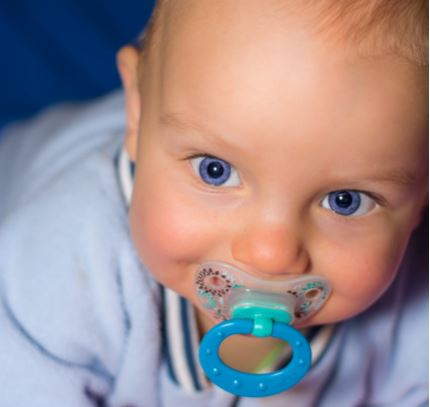New research suggests a link between parents sucking on their baby's pacifier and lower allergic response among young children.
The new study published on November 16 via Science Daily, and being presented at the American College of Allergy, Asthma and Immunology (ACAAI) Annual Scientific Meeting suggested that it may not be gross at all to suck your baby's pacifier before popping it into the kid's mouth. Instead, the study said that it could lower allergic response among the babies.
"We interviewed 128 mothers of infants multiple times over a period of 18 months and asked how they cleaned their child's pacifier," allergist Eliane Abou-Jaoude, MD, ACAAI member and lead author on the study conducted by Henry Ford Health System in Detroit, said. "We found the children of mothers who sucked on the pacifier had lower IgE levels." IgE is a type of antibody related to allergic responses in the body. Although there are exceptions, higher IgE levels indicate a higher risk of having allergies and allergic asthma."
Among the 128 mothers who participated in the interviews, 58 percent of them were using their child's pacifier. Of those who used pacifiers, 41 percent of them clean the pacifier by sterilization, 72 percent hand washing it, 12 percent parental sucking it.
"We know that exposure to certain microorganisms early in life stimulates the development of the immune system and may protect against allergic diseases later," Dr. Abou-Jaoude, said. "Parental pacifier sucking may be an example of a way parents may transfer healthy microorganisms to their young children. Our study indicates an association between parents who suck on their child's pacifier and children with lower IgE levels but does not necessarily mean that pacifier sucking causes lower IgE."
"We found that parental pacifier sucking was linked to suppressed IgE levels beginning around 10 months, and continued through 18 months," allergist Edward Zoratti, MD, ACAAI member and co-author of the study, said. "Further research is needed, but we believe the effect may be due to the transfer of health-promoting microbes from the parent's mouth. It is unclear whether the lower IgE production seen among these children continues into later years."










